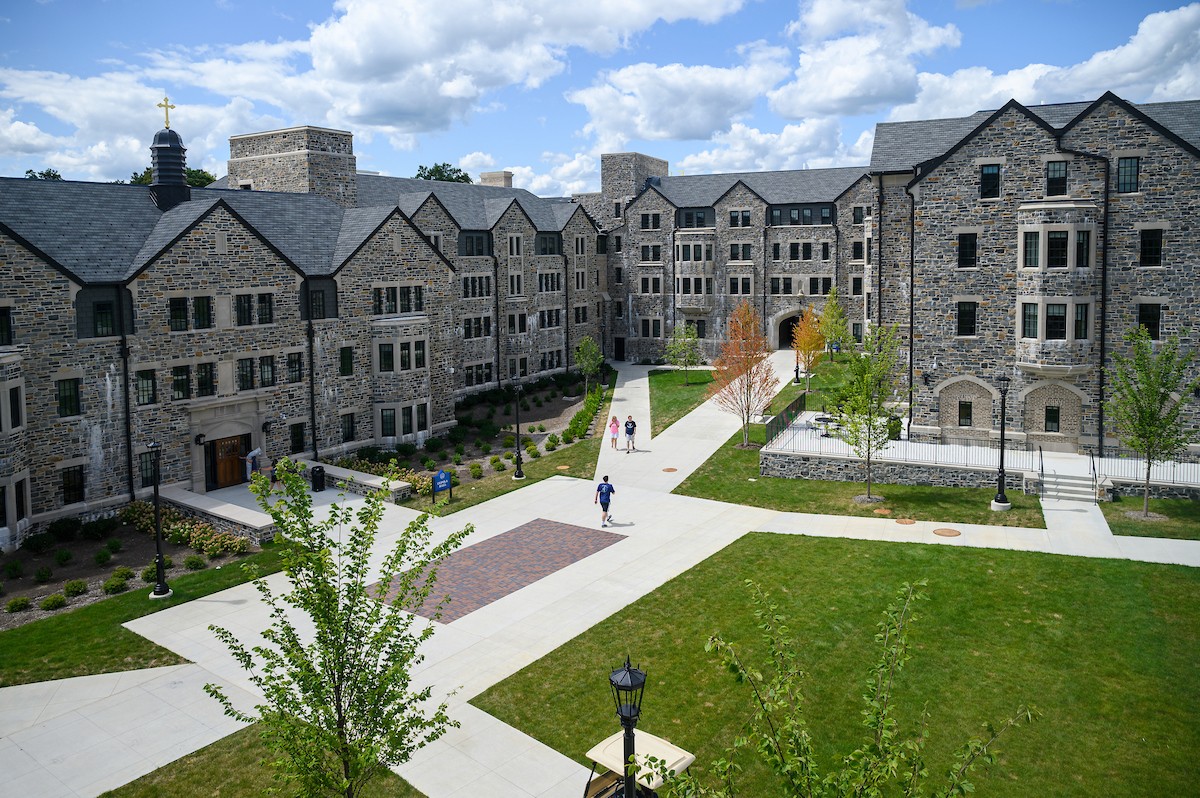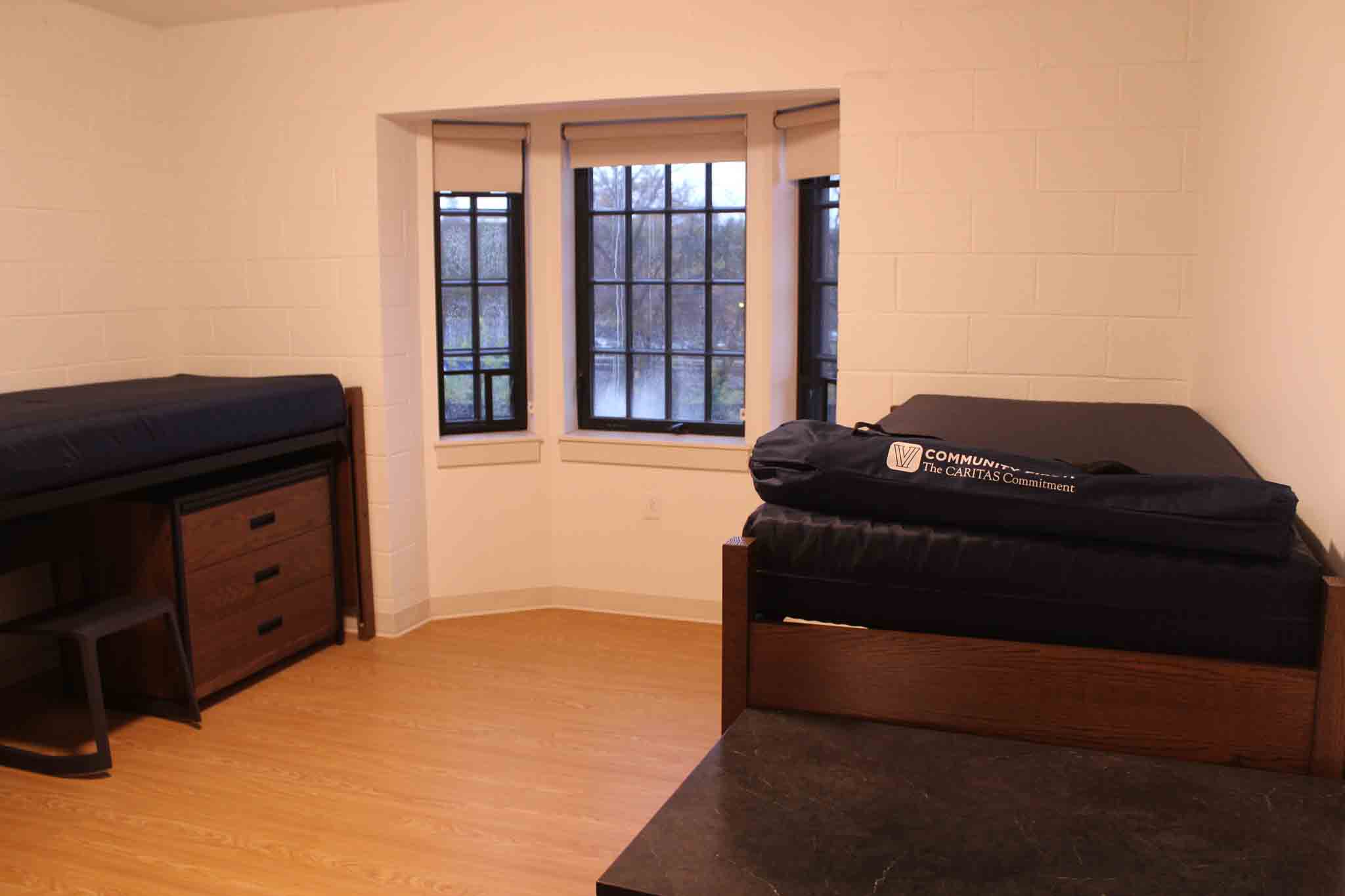Comprehensive Guide To Villanova Graduate Housing: Everything You Need To Know
Villanova University offers a vibrant academic environment for graduate students, and finding suitable housing is a crucial part of their journey. Graduate students often seek accommodation options that balance affordability, convenience, and proximity to campus. Villanova graduate housing caters to these needs by providing a range of living options designed specifically for graduate students. This article delves into the nuances of Villanova graduate housing, offering insights into available facilities, costs, and application processes to ensure students make informed decisions.
With Villanova University being one of the premier institutions in the United States, its housing facilities for graduate students have gained significant attention. The university recognizes the unique requirements of graduate students and strives to provide housing options that support academic success and personal well-being. As students explore their choices, understanding the nuances of Villanova graduate housing becomes essential.
This article is crafted to provide an in-depth look into Villanova graduate housing options, ensuring students have all the necessary information at their fingertips. From exploring different housing types to understanding the application process, this guide aims to simplify the decision-making process for prospective students.
Read also:Kelly Osbournes Weight And Height A Comprehensive Look At Her Journey
What Are the Key Features of Villanova Graduate Housing?
Villanova graduate housing stands out due to its commitment to providing a supportive environment for students. The university offers a variety of housing options, including apartments and shared living spaces, designed to meet the diverse needs of graduate students. These accommodations come equipped with modern amenities, ensuring a comfortable living experience. Additionally, the university emphasizes community building, offering various programs and events to foster interaction among residents.
Some of the standout features of Villanova graduate housing include:
- Proximity to academic buildings and facilities
- Access to on-campus dining options
- Safe and secure living environments
- Opportunities for social and academic engagement
How Does Villanova Graduate Housing Support Graduate Students?
Villanova University understands the challenges faced by graduate students and has tailored its housing options to address these concerns. By offering flexible living arrangements, the university ensures that students can focus on their studies without worrying about accommodation logistics. Villanova graduate housing also provides access to essential resources such as libraries, study spaces, and recreational facilities, enhancing the overall student experience.
Furthermore, the housing facilities are designed to promote a sense of community among graduate students. Regular social events and activities are organized to encourage interaction and collaboration, helping students build lasting connections with their peers. This supportive environment contributes to the overall success and satisfaction of graduate students at Villanova.
What Should You Consider When Choosing Villanova Graduate Housing?
Selecting the right housing option is a critical decision for graduate students. When evaluating Villanova graduate housing, there are several factors to consider:
- Location and proximity to campus
- Cost and affordability
- Availability of amenities and facilities
- Community and social opportunities
By carefully weighing these factors, students can choose a housing option that aligns with their preferences and needs. It is also advisable to visit the housing facilities in person or attend virtual tours to gain a better understanding of the living environment.
Read also:Ecryptobit The Ultimate Guide To Understanding And Mastering Cryptocurrency
Why Choose Villanova Graduate Housing?
Villanova graduate housing offers numerous advantages that make it an attractive choice for students. The university's commitment to providing quality accommodation ensures that graduate students have access to safe, comfortable, and convenient living spaces. Additionally, the emphasis on community building and social engagement fosters a supportive environment conducive to academic success.
Another compelling reason to choose Villanova graduate housing is the proximity to campus facilities. This proximity minimizes travel time and allows students to fully immerse themselves in university life. Furthermore, the housing options are designed with graduate students in mind, offering flexible living arrangements that cater to their unique needs.
What Are the Costs Associated with Villanova Graduate Housing?
Understanding the costs associated with Villanova graduate housing is essential for budgeting purposes. The university offers a range of pricing options based on the type of accommodation and amenities provided. While costs may vary depending on the specific housing option chosen, Villanova strives to keep its housing affordable for graduate students.
In addition to rent, students should consider other expenses such as utilities, internet, and parking. The university provides detailed information about these costs to help students plan their budgets effectively. It is also worth noting that financial aid and scholarships may be available to assist with housing expenses.
How Can You Apply for Villanova Graduate Housing?
The application process for Villanova graduate housing is straightforward and can be completed online. Students are required to submit an application form, along with any necessary documentation, by the specified deadline. Once the application is received, the university reviews it and assigns housing based on availability and preferences.
It is advisable to apply early to secure a spot in the desired housing option. Additionally, students should familiarize themselves with the application requirements and deadlines to avoid any delays or complications. The university provides comprehensive guidance and support throughout the application process to ensure a smooth transition for new students.
Can Graduate Students Live Off-Campus Instead of Choosing Villanova Graduate Housing?
While Villanova graduate housing offers numerous benefits, some students may prefer to live off-campus. Living off-campus provides greater independence and flexibility, allowing students to choose their own accommodations and living arrangements. However, it is important to weigh the pros and cons before making this decision.
Some advantages of living off-campus include lower costs, more spacious living options, and the ability to customize the living environment. On the other hand, off-campus living may involve longer commutes, increased responsibility for utilities and maintenance, and potentially less interaction with the university community. Students should carefully consider these factors before deciding between Villanova graduate housing and off-campus options.
What Are the Benefits of Living in Villanova Graduate Housing?
Living in Villanova graduate housing offers several benefits that enhance the overall student experience. One of the primary advantages is the proximity to campus, which minimizes travel time and allows students to fully engage in university activities. Additionally, the housing facilities are designed to provide a safe and secure living environment, ensuring students can focus on their studies without unnecessary distractions.
Another benefit of Villanova graduate housing is the opportunity to connect with fellow graduate students. The university organizes various events and programs to foster community and social interaction among residents. This sense of belonging contributes to a positive and supportive living environment, helping students thrive both academically and personally.
Is Villanova Graduate Housing Pet-Friendly?
For students who wish to bring their pets to campus, understanding the pet policies of Villanova graduate housing is crucial. While the university has specific guidelines regarding pets, some housing options may allow animals under certain conditions. Students interested in living with pets should review the university's policies and contact the housing office for more information.
It is important to note that pet-friendly housing options may be limited, and additional fees or restrictions may apply. Students should carefully consider their needs and preferences when choosing a housing option that accommodates pets. The university strives to balance the needs of all residents, ensuring a harmonious living environment for everyone.
Conclusion: Making the Right Choice for Your Graduate Journey
Villanova graduate housing provides a comprehensive and supportive living environment for graduate students. With a range of accommodation options, modern amenities, and a strong emphasis on community building, the university ensures that students have access to everything they need to succeed. By carefully considering the available options and understanding the application process, students can make informed decisions about their housing choices.
Whether choosing Villanova graduate housing or exploring off-campus options, the key is to find a living arrangement that aligns with your needs and preferences. By taking the time to research and evaluate your options, you can create a comfortable and conducive environment for your graduate studies. Remember, the right housing choice can significantly impact your overall university experience, so make it count.
Table of Contents
- What Are the Key Features of Villanova Graduate Housing?
- How Does Villanova Graduate Housing Support Graduate Students?
- What Should You Consider When Choosing Villanova Graduate Housing?
- Why Choose Villanova Graduate Housing?
- What Are the Costs Associated with Villanova Graduate Housing?
- How Can You Apply for Villanova Graduate Housing?
- Can Graduate Students Live Off-Campus Instead of Choosing Villanova Graduate Housing?
- What Are the Benefits of Living in Villanova Graduate Housing?
- Is Villanova Graduate Housing Pet-Friendly?
- Conclusion: Making the Right Choice for Your Graduate Journey


